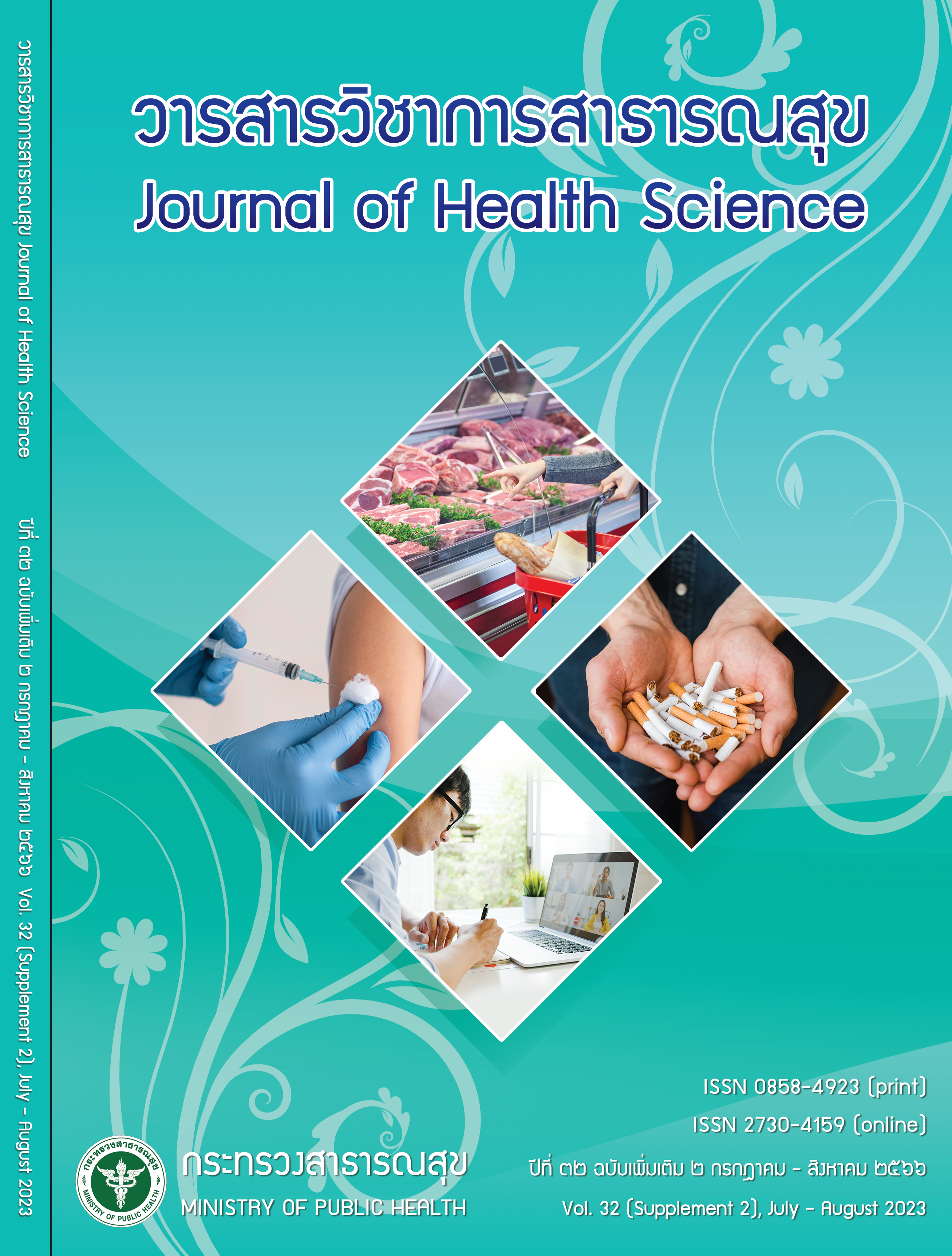A Study of Swallowing Rehabilitation Outcome Using the Swallowing Quality Assessment Scale for Occupational Therapist
Keywords:
stroke, dysphagia, swallowing quality assessment scale for occupational therapist (SQAOT)Abstract
Swallowing difficulty or dysphagia is a critical health problem following stroke. Besides effective swallowing training program, appropriate swallowing assessment tool is also important for swallowing rehabilitation. In our previous study, the swallowing quality assessment scale for occupational therapist (SQAOT) was successfully developed and tested for psychometric properties. The test result indicated good psychometric properties in this novel assessment scale. This study aimed to assess the swallowing rehabilitation outcome by using the SQAOT, and to test the correlation between the SQAOT and the standard, commonly used assessment scale that is the functional oral intake scale (FOIS). Thirty post-stroke dysphagia patients were participated in the study by a process of purposive sampling. All participants were assessed by the SQAOT and the FOIS. The assessment was conducted twice: (1) before the first swallowing training program, and (2) after the last swallowing training program (visit 12). The results demonstrated significantly improvement of swallowing function in all participants (p<0.001). High correlation between both assessment scales was also revealed (r=0.709). The study results indicated that the SQAOT was appropriated and practical to use in the clinical context, either use individually or use in combination with the FOIS.
Downloads
References
พรสวรรค์ โพธิ์ สว่าง. บรรณาธิการ. แนวทางปฏิบัติในการให้ บริการทางกิจกรรมบำบัดสำหรับผู้ที่มีภาวะกลืนลำบากจาก โรคหลอดเลือดสมอง (occupational therapy for post stroke dysphagia: a clinical guideline). นนทบุรี: สถาบันสิรินธรเพื่อการฟื้ นฟูสมรรถภาพทางการแพทย์แห่งชาติ; 2554.
Falsetti P, Acciai C, Palilla R, Bosi M, Carpinteri F, Zingarelli A, et al. Oropharyngeal dysphagia after stroke: incidence, diagnosis, and clinical predictors in patients admitted to a neurorehabilitation unit. J Stroke Cerebrovas Dis 2009;18(5):329-35.
Martino R, Foley N, Bhogal S, Diamant N, Speechley M, Teasell R. Dysphagia after stroke: incidence, diagnosis, and pulmonary complications. Stroke 2005;36: 2756-63.
คณะกรรมการวิชาชีพสาขากิจกรรมบำบัดและสำนักสถานพยาบาลและการประกอบโรคศิลปะ กรมสนับสนุนบริการสุขภาพ. แนวปฏิบัติทางคลินิกกิจกรรมบำบัดสำหรับผู้รับ บริการโรคหลอดเลือดสมอง. นนทบุรี: กรมสนับสนุนบริการสุขภาพ 2555.
American Occupational Therapy Association. Standards of practice for occupational therapy. American Journal of Occupational Therapy 2014;69(3):6913410057.
Crary MA, Mann GDC, Groher ME. Initial psychometric assessment of a functional oral intake scale for dysphagia in stroke patients,. Archives of Physical Medicine and Rehabilitation 2005;86(8):1516-20.
พรสวรรค์ โพธิ์ สว่าง, พรทิพย์พา ธิมายอม, ยุวดี มณีทอง, ชาลิณี ขันทะ. การพัฒนาแบบประเมินคุณภาพการกลืน สำหรับนักกิจกรรมบำบัด. วารสาร Mahidol R2R e-Journal 2564;8(2):102-10.
สมบัติ ท้ายเรือคำ. การพัฒนาแบบสอบถามและแบบวัดทาง จิตวิทยา. วารสารวิจัยเพื่อพัฒนาสังคมและชุมชน มหาวิทยาลัยราชภัฏมหาสารคาม 2528-2559;3(15):35-48.
ประสพชัย พสุนนท์. ความเทียงตรงของแบบสอบถามสำหรับ งานวิจัยทางสังคมศาสตร์. วารสารสังคมศาสตร์ มหาวิทยาลัย ศรีนครินทรวิโรฒ 2558;18:375-96.
Downloads
Published
How to Cite
Issue
Section
License

This work is licensed under a Creative Commons Attribution-NonCommercial-NoDerivatives 4.0 International License.



